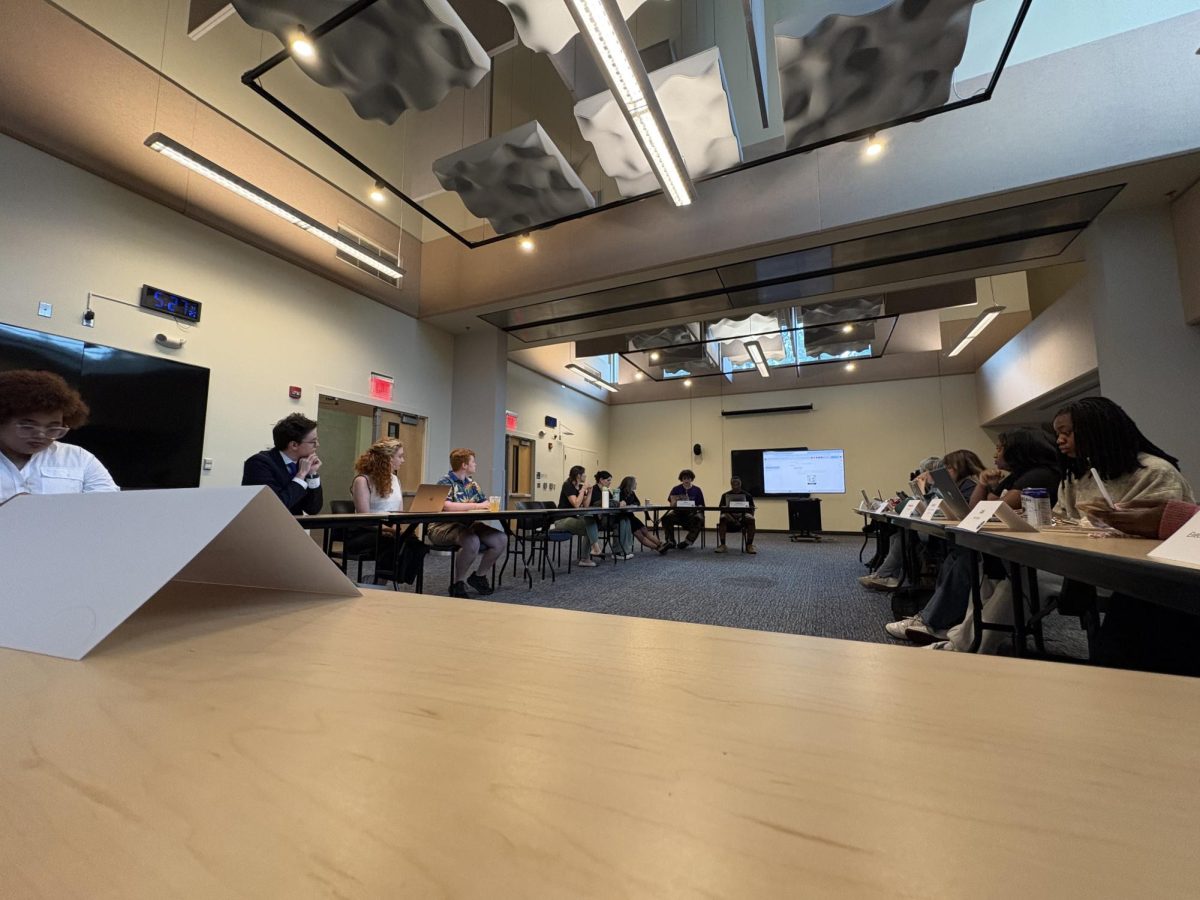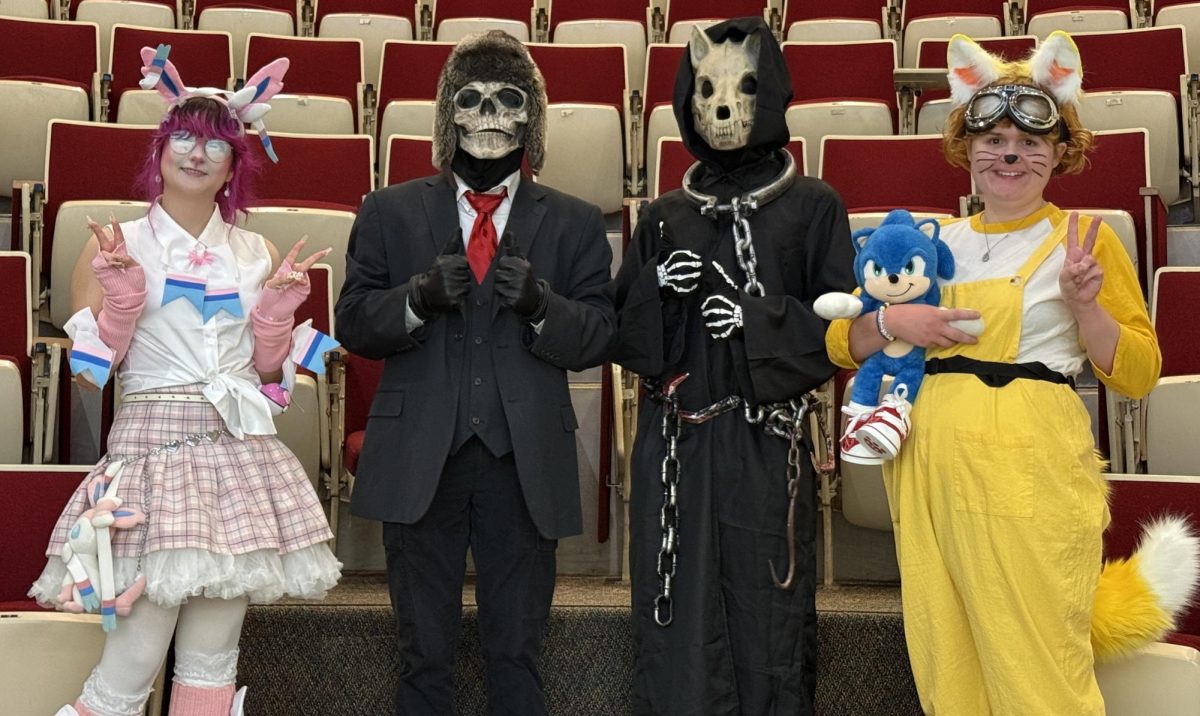UNCA administration explains measures to be taken concerning welfare of students
Banner staff members speak with Meghan Harte Weyant about her email regarding crisis care.
October 4, 2022
Questions about training for faculty and campus police emerge from the controversial email sent on Sept. 12 to faculty regarding steps to take if a student is in crisis by UNC Asheville’s Meghan Harte Weyant.
Weyant said one of the things they are exploring as a team includes looking into areas where they could possibly expand on response.
“We are going to do a tabletop in early October to really vet out how exactly we respond, where are the gaps and how are we making sure we fill those gaps,” Weyant said.
Melanie Fox, co-interim associate vice chancellor of student affairs, explains what exactly a tabletop exercise encompasses and how it will look for their student affairs division.
She said tabletop exercises are discussion-based sessions where team members meet in an informal setting to discuss their roles during either an emergency or other scenario and their responses, all guided by a facilitator.
“For our particular scenario, we will be processing how we should navigate a specific situation regarding a student in emotional distress. The tabletop exercise goes through each step in the process from when we get notified that an incident is occurring to the resolution of the situation,” Fox said.
She said in addition, they will have other people observing and taking notes in order to give as complete of an understanding as possible to necessary stakeholders.
“The beauty of these types of exercises is that they allow us to reconsider our current processes and make appropriate and necessary changes that will impact the student experience in positive ways,” Fox said.
Fox said while campus police are always on call, there are members of the care and crisis team who are on call as well.
“The coordinated care model is critical. The more we communicate with one another, the more we know about what’s going on with a particular student,” she said.
Fox said having others accompany university police proves important for all parties as those involved in the coordinated care model include campus police, people from health and counseling as well as the student affairs division.
“We want the care to be as encompassing as we can get it for that student,” she said.
Fox said they seek to honor that care while also honoring the safety and well-being of the community, naming the tabletop exercise as a way to work toward this goal.
Fox said they’re also considering hosting some listening sessions with the university community.
“We haven’t decided on a format or timeframe for community listening sessions, but the goal of them will be to hear from the campus, students, faculty and staff regarding their experiences dealing with students in crisis or with those with general issues that need assistance,” she said.
She said there will be some explanations of their current processes, but the real outcome they hope to obtain is a greater understanding of how to serve students more effectively with even more empathy.
“I think there is a lack of understanding in how we navigate situations in an emergency setting and the belief might be university police are the predominant responder, if not the only responder,” she said.
David Weldon, director of emergency management at UNCA, said their purpose in public safety requires campus police to be first on the scene, evaluate and then call in outside agencies.
“It could be our care and crisis team, somebody from health and counseling or even somebody from the dean of students office,” he said.
The care model often referred to by Fox is the care and crisis team.
“The Campus Assessment, Response, and Education (CARE) and Crisis Team is an interdisciplinary unit that works collaboratively to provide intervention, resources, and assistance to students who are struggling with their success at UNC Asheville,” she said.
Fox said college proves a time of continual growth and transition.
“Some of these transitions and life events may spark personal crises that inhibit a student’s personal and academic success. The CARE and Crisis Team partners with faculty, staff, students, parents, and families to address these concerns and crises to ensure the health and safety of all our students,” she said.
Fox said members of this team include representatives from the Health and Counseling Center, Residence Life, Multicultural Student Programs, and the University Police.
“Having a collaborative team like this allows us to have multiple resources for individual students and also allows us to not inundate students from several different offices, while still keeping all necessary parties informed about how they can best assist a student in real time,” she said.
Megan Pugh, the dean of students, said the idea of compassion, care and community lingers as a topic often discussed.
“When I’m thinking about what my work with students looks like, it absolutely involves public safety and university police,” she said.
Pugh said we all have a responsibility to contribute to campus community and care.
“It is very important to me that students not only recognize university police as a resource but also recognize our staff and colleagues that work for university police and campus safety as people who are here because they have compassionate hearts and want to keep our campus safe,” she said.
“I’m really excited to have Chief Dodd here and to see what that relationship looks like moving forward because I do think we are at a time where there is an opportunity to change the relationship with university police and our students.” she said.
UNCA’s chief of police, Daran Dodd, said if that includes additional training or looking at processes like ones previously mentioned to determine what the best way to respond proves to be, that is what they are open to doing.
“My goal is that every one of our police officers would be trained in crisis intervention techniques, which is a class taught by outside entities to law enforcement to help them understand how to respond to folks in crisis and what resources are available in our local community that we can point folks toward,” he said.
The new police chief said he’s very happy to be at UNCA, saying his strategy is to evaluate things being done well and seeing what areas can be improved.
“We want to recruit good folks that want to be here on campus. That’s one of the benefits of having university police on a campus as opposed to relying on an outside agency,” Dodd said.


















